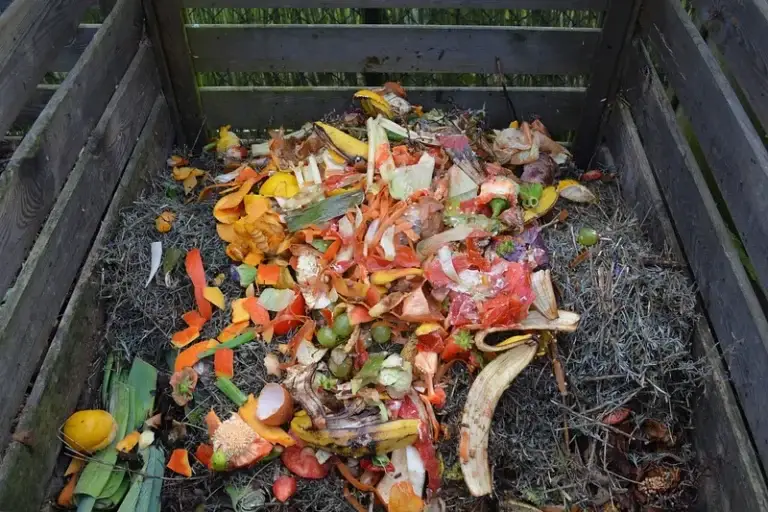No products in the cart.

जैविक खेती Sustainable Farming for a Healthier Future
जैविक खेती: A Path to Sustainable Agriculture
Introduction
Have you ever wondered what’s behind the buzz about organic farming, or जैविक खेती, as it’s known in Hindi? It seems like everywhere you look, people are talking about going organic. But what does it really mean, and why is it important for us and the planet? Let’s dive into the world of जैविक खेती and uncover its benefits, challenges, and the difference it can make in our lives.

Table of Contents
| Sr# | Headings |
|---|---|
| 1. | What is जैविक खेती? |
| 2. | History and Evolution of जैविक खेती |
| 3. | Principles of जैविक खेती |
| 4. | Benefits of जैविक खेती |
| 5. | Challenges in जैविक खेती |
| 6. | Comparison with Conventional Farming |
| 7. | How to Start जैविक खेती? |
| 8. | Popular Techniques in जैविक खेती |
| 9. | Success Stories of जैविक खेती |
| 10. | Economic Aspects of जैविक खेती |
| 11. | Impact of जैविक खेती on Health |
| 12. | Environmental Impact of जैविक खेती |
| 13. | Future of जैविक खेती |
| 14. | Government Policies and Support |
| 15. | Conclusion |
1. What is जैविक खेती?
Jैविक खेती, or organic farming, is a method of farming that relies on natural processes and materials to grow crops. Instead of using synthetic chemicals and fertilizers, organic farming uses compost, green manure, and biological pest control. It’s like nature’s own way of taking care of itself, ensuring that the soil and ecosystem remain healthy and productive over the long term.
2. History and Evolution of जैविक खेती
The roots of जैविक खेती can be traced back to ancient civilizations. Early farmers relied on traditional methods that preserved soil fertility and ecological balance. However, the industrial revolution and the subsequent Green Revolution brought chemical fertilizers and pesticides into mainstream agriculture. This shift, while increasing yields, also led to environmental degradation and health concerns. The organic movement emerged as a response, advocating a return to more sustainable farming practices.
3. Principles of जैविक खेती
a. Soil Health
Soil is the foundation of organic farming. Maintaining its health is crucial. This involves crop rotation, using organic compost, and avoiding chemical fertilizers.
b. Biodiversity
Encouraging a variety of plants and animals in the farming system helps create a balanced ecosystem that can naturally control pests and diseases.
c. Sustainability
The goal is to create a farming system that can be productive for generations without depleting natural resources.
d. Chemical-Free
Organic farming strictly avoids synthetic pesticides and fertilizers, relying instead on natural alternatives.
4. Benefits of जैविक खेती
a. Healthier Food
Organic foods are free from harmful chemicals, making them safer and often more nutritious.
b. Environmental Protection
By avoiding synthetic chemicals, organic farming reduces pollution and conserves water and soil quality.
c. Biodiversity Preservation
Organic farms often have more diverse ecosystems, which can help support wildlife and plant species.
d. Sustainable Livelihoods
Farmers can often get better prices for organic produce, supporting more sustainable and profitable farming practices.
5. Challenges in जैविक खेती
a. Lower Yields
Organic farming can sometimes produce lower yields compared to conventional methods, which can be a challenge for feeding large populations.
b. Certification Costs
Getting organic certification can be expensive and time-consuming for farmers.
c. Market Competition
Organic farmers face stiff competition from conventional farming products, which are often cheaper to produce and sell.
d. Pest and Disease Management
Managing illnesses and pests without the use of artificial chemicals might be more difficult and time-consuming.
6. Comparison with Conventional Farming
a. Chemical Usage
Conventional farming relies heavily on synthetic chemicals, while organic farming uses natural methods.
b. Environmental Impact
Organic farming has a lower environmental footprint compared to conventional farming, which often leads to soil degradation and pollution.
c. Cost of Production
Conventional farming can be cheaper in terms of immediate costs, but organic farming offers long-term sustainability benefits.
d. Yield
Conventional farming generally provides higher yields, but at the cost of environmental and health impacts.
7. How to Start जैविक खेती?
a. Educate Yourself
Learn about organic farming principles, techniques, and regulations.
b. Soil Preparation
Start with healthy soil by adding organic matter and ensuring good drainage.
c. Choose the Right Crops
Select crops that are well-suited to your local climate and soil conditions.
d. Organic Inputs
Make use of compost, organic seeds, and organic pest control techniques.
e. Certification
If you plan to sell your produce as organic, you’ll need to get certified by an accredited agency.
8. Popular Techniques in जैविक खेती
a. Composting
Recycling organic matter to create nutrient-rich compost for the soil.
b. Crop Rotation
Changing the type of crops grown in each field seasonally to prevent soil depletion and pest build-up.
c. Green Manure
Growing certain plants to plow them back into the soil to improve fertility.
d. Biological Pest Control
Using natural predators to control pests instead of synthetic chemicals.
9. Success Stories of जैविक खेती
a. Navdanya Movement
Founded by Dr. Vandana Shiva, this movement promotes organic farming and seed sovereignty in India.
b. Sikkim: The Organic State
Sikkim became the first fully organic state in India, showcasing the potential of organic farming on a large scale.
c. Individual Farmers
Many individual farmers across India have successfully transitioned to organic farming, improving their livelihoods and contributing to a healthier environment.
10. Economic Aspects of जैविक खेती
a. Market Demand
Organic products are becoming more and more in demand both domestically and abroad.
b. Premium Prices
Organic products often fetch higher prices, providing better income for farmers.
c. Cost Savings
While initial costs can be high, long-term savings on chemical inputs and health benefits can offset these.
11. Impact of जैविक खेती on Health
a. Reduced Chemical Exposure
Consumers and farmers are exposed to fewer harmful chemicals, reducing health risks.
b. Nutritional Benefits
Some studies suggest that organic produce may have higher nutritional value compared to conventionally grown food.
c. Public Health
Reduced pesticide use can lead to lower rates of pesticide-related illnesses.
12. Environmental Impact of जैविक खेती
a. Soil Conservation
Organic farming practices help maintain and improve soil health.
b. Water Conservation
By avoiding chemical runoff, organic farming helps protect water sources from contamination.
c. Climate Change Mitigation
Organic farming can help sequester carbon in the soil, reducing greenhouse gas emissions.
13. Future of जैविक खेती
a. Technological Innovations
Advances in technology can help improve organic farming practices and yields.
b. Policy Support
Increased government support and favorable policies can boost the growth of organic farming.
c. Consumer Awareness
Growing awareness about the benefits of organic food will continue to drive demand.
14. Government Policies and Support
a. Subsidies
Many governments offer subsidies and financial incentives for organic farming.
b. Training Programs
Government and non-governmental organizations provide training and support for farmers transitioning to organic methods.
c. Certification Assistance
Help with the certification process can make it easier for farmers to become officially recognized as organic producers.
15. Conclusion
Jैविक खेती is more than just a trend; it’s a crucial step towards a healthier, more sustainable future. By embracing organic farming practices, we can protect our health, our environment, and our future generations. Whether you’re a farmer looking to make the switch or a consumer wanting to make better choices, understanding and supporting जैविक खेती can make a significant difference.
FAQs
What distinguishes conventional farming from organic farming?
Organic farming avoids synthetic chemicals, focuses on soil health and biodiversity, and aims for sustainability, whereas conventional farming often relies on chemical inputs and monoculture practices.
2. Is organic food healthier than conventional food?
Organic food is generally free from harmful pesticides and chemicals, and some studies suggest it may have higher nutritional value.
3. How can I start my own organic farm?
Educate yourself on organic farming principles, prepare your soil with organic matter, choose appropriate crops, use organic inputs, and consider getting certified.
4. What are the environmental benefits of organic farming?
Organic farming helps conserve soil and water, reduces pollution, and can help mitigate climate change by sequestering carbon in the soil.
5. What support is available for organic farmers?
Many governments provide subsidies, training programs, and assistance with the certification process to support organic farmers.
Go and turn on towards organic farming to save future and thire save childs:
Elevate Plant Growth with Premium Bone Powder – Buy Now!
Organic Cow Dung Compost: Transform Your Garden Naturally
Premium Humic Acid for Healthy Plants | Enhance Soil & Boost Growth
Boost Plant Growth Naturally with Mustard Cake | Organic Fertilizer
Transform Your Garden with NPK Fertilizer | Boost Growth by 30%
Premium Perlite for Enhanced Gardening | Buy Now
Live Earthworms with Enhance Your Garden (soil health)
1 Neem Khali: Unveiling the Wonders of Nature
1Transform your garden with vermiwash-buy now
1 Premium quality Vermicompost [ केचुआ खाद ]
Follow us:



